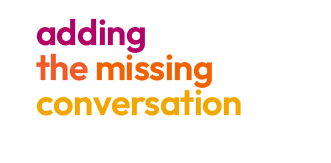There are moments when reality shifts—when what once seemed solid and unchangeable reveals itself to be fluid, alive, and full of possibility. We experience this in fleeting glimpses: the effortless flow of an athlete in motion, a musician lost in the rhythm, a conversation that opens new doors in the mind. These moments are not exceptions to reality; they are clues about how reality truly works. They show us that, beyond the rigid structures we have built—our laws, our systems, our politics—there is a more natural way of being, thinking, and deciding together.
Psychologist Mihály Csíkszentmihályi described one such glimpse as flow. In this state, time dissolves, effort vanishes, and we act not through force but through an intuitive merging with the moment. The pianist no longer plays the music; the music plays through them. The scientist no longer struggles for insight; the insight simply arrives. In these moments, the boundary between self and action disappears. We stop behaving like discrete, fixed points in space and begin to move like waves—fluid, dynamic, interconnected. This is not just a metaphor. It is how nature itself works at its deepest level.
Modern physics tells us that at the most fundamental level, reality does not consist of separate, isolated objects but of wave-like fields of probability. A particle is not a particle until it is measured; until then, it exists in a state of pure potential. Only when it is forced into a decision—when it is being observed—does it settle into one possibility among many. When people come together in a state of true flow, something similar happens: instead of behaving like rigid particles, locked into fixed opinions and competing positions, they become part of a larger wave of shared creativity. Insights emerge, not from argument, but from the space between ideas.
This is what happens in Dynamic Facilitation and the Wisdom Council Process, where groups start generating solutions that no individual could have predicted. Rather than compromise or persuasion it means entirely stepping into a new mode of thinking—one where opppsing points of view become a resource for the group and propel a drive towards new solutions instead of killing each others precious ideas. Its about saying yes to life, saying yes to creativity and expansion all while tapping into the collective unconscious. It is about moving from a static reality to a dynamic one.
Robert Pirsig, in his Metaphysics of Quality, called this deeper force Dynamic Quality—the source of all creativity, insight, and transformation. A kind of quality we can only experience in the moment, just like a flow experience – a moment of pure bliss. Dynamic Quality is the spark that allows evolution to happen. As soon as we want describe this experience of dynamic quality, when we tell others about our experience for eyample, it has already turned into Static Quality. In governance, we have spent too long clinging to Static Quality—rules, procedures, elections, rigid debates—while ignoring the deeper intelligence that arises when people enter a state of creative emergence.
The implications of this are profound. If reality itself is not fixed but emergent, if the best ideas do not come from structured deliberation but from entering a state of dynamic flow, then our entire approach to decision-making must change. We need to move beyond the old, Newtonian like logic of governance—the idea that leadership is about control, that solutions must be imposed, that democracy must be a contest of competing wills. We need to create the conditions where wisdom can emerge, not just from individuals, but from entire societies acting as a field of intelligence.
it is already happening. In Austria and Germany, Bürgerräte—citizen wisdom councils—have been integrated into governance, offering a glimpse of what is possible when people are given the space to generate solutions outside of party politics. But these experiments, though promising, are still being forced into old structures that do not know how to hold them. They exist as anomalies and single events, rather than as signs of a paradigm shift and as an ongoing processes. What would happen if, instead of trying to fit participatory wisdom into an old system, we built a new system entirely around it?
This is the call of our time
…to move beyond the idea of decision-making as choosing between two, maybe three fixed options, and into the reality of choice-creating—where possibilities unfold through participation, where governance is purely about resonance. This may just be a better way of doing politics; it is an entirely new way of seeing the world. When we say good bye to winning arguments, better policies, and make bureaucracy more efficient. It is about aligning our collective intelligence with the actual structure of reality—where solutions are not imposed but emerge naturally when we step into the flow of what wants to be created.
This is not the future. This is the present unfolding. The only question is: how soon will we choose to see it?
